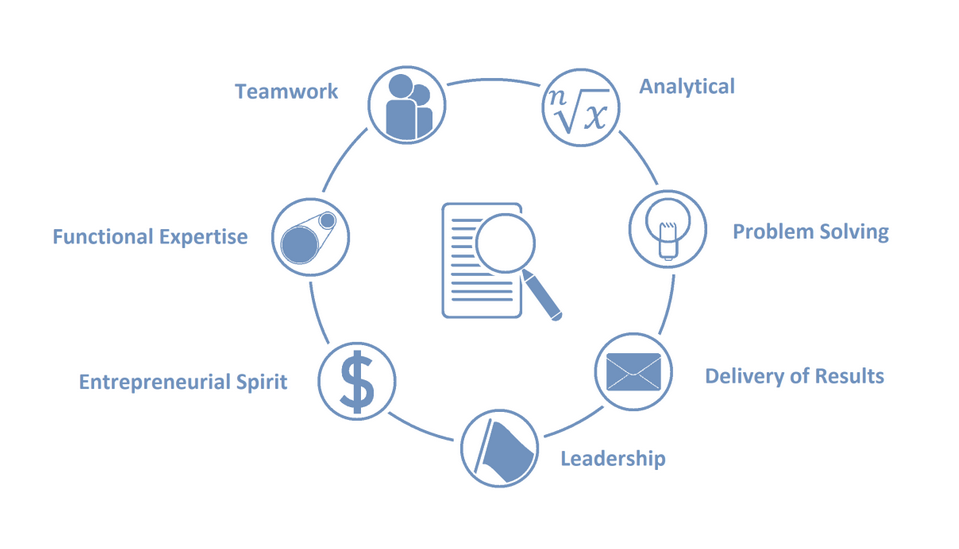Top Tips for a Perfect Management Consulting Resume

Top management consulting firms like McKinsey, Bain and BCG are hugely oversubscribed with dozens of applications for each role.
The consultancies simply do not have time to interview everyone and need to cut down the numbers as quickly as possible. As a result, over 60% of applications will fail to make it past the initial screening phase. The resumes will go in the bin, along with their owner’s chances of a job.
Despite the importance of resumes being very frequently underestimated by applicants, then, the reality is that your resume is the arguably single most important element in determining whether you land a job or not.
With that in mind, you are certainly going to want to write the very best resume you can. To that end, we’ll run through our most crucial tips to keep firmly in mind when putting together a consulting resume.
Table of Contents
NB: Don’t Forget Your Cover Letter
Whilst we will be focusing on resumes here and some offices only require you to submit that document, you will often be required to also submit a cover letter, with some recruiters taking these very seriously.
Suffice to say that you should also take your cover letters seriously and apply the same general principles as we cover for your resume here. We don’t have space to discuss cover letters in detail here, but there are a few great online cover letter guides to help you out here for free.
Start Afresh for Consulting Resumes

It is tempting to use a single resume for all your job applications and vary the cover letter for each particular role. Even when applying for similar positions, your resume should be updated to highlight how your specific set of skills and experience fit the role perfectly.
For management consultancy, your resume will be very specific and will focus on the type of consulting you are applying to do. A resume written for a generalist consulting role will not fit for a position in financial services consulting.
Ensure each resume is laser-focused on the particular skills you bring to the job and how these match the employer’s requirements. Read the job description and ensure your resume lists skills that fulfill the requirements.
Demonstrate the Key Consulting Skills
Always remember that the whole point of your resume is to convince your recruiters that you have the rare set of skills required to thrive in the job.
Every entry should effectively be one more reason to believe that you have one or more of the following skills, which should make you suitable to join the firm as a consultant.
- Analytical – have a high cognitive capacity and an analytic mindset
- Problem solving – be able to apply your intellect to generate effective solutions to complex problems
- Delivery of results – be able to put your ideas into action so as to generate positive outcomes
- Leadership – have the ability to take the lead on projects where necessary
- Entrepreneurial spirit – have a strong personal drive to succeed and get things done and be prepared to take individual initiative
- Functional expertise – be familiar with the world of business and understand how it works at a practical level
- Teamwork – be able to manage relationships and work productively with team members
Think very hard about where you have exhibited these skills in all aspects of your life. It might not just be in work or academia, but also in your extra-curriculars, hobbies or personal life. What matters is the skill, not the context.
Be “Achievement Driven”

Having the relevant skills isn’t enough – you then also need to convince the recruiters that you have them!
This is easier said than done, as consulting firms are not given to accepting the authority of external bodies. It will not be assumed that because you held a job that you were competent at it. Nor will it be assumed that because you hold a certain grade in a foreign language that you are able to speak it at all well.
As a result, recruiters are not particularly interested in specific previous roles that you might have held. Unless you have a Nobel Prize or have been to space, nobody will be interested.
Consultancy firms are very results and achievements focused. Leaving a top university with good grades is a great start, but you need to be able to prove what you can do for progression in this industry. This is where achievements come in.
Interviewers are not interested in the waffle, so focus on actual figures. If you managed to increase the company profit, tell them by what percentage. Did you increase customer loyalty and retention? Then quote the figures and how you achieved this.
But don’t go overboard, as the reader will quickly lose interest if you bombard them with endless figures. Aim to show precisely what you achieved without putting them to sleep!
Using the achievement approach demonstrates to the reader that you can use your skills and put them into practice. This is precisely what a consultant is expected to do, so you are effectively showing that you can do the job.
Don’t forget that if you are lucky to get an interview, you are very likely to be asked about your achievements. Usually, the interviewer is looking for aspecific examples of increasing profit, new leads, or something relevant to the type of consulting role. Regurgitating numbers will not work, and you need to explain how you achieved the results. By writing these down in your resume, you are also getting practice for the interview.
Follow the Industry Standard Format

Whilst a “normal” resume for another industry is usually a fairly simple chronological record of your past roles and experiences, rather more is required of a management consulting resume. This implies a very particular format.
At the most fundamental level, you need to hold relentlessly to the standard, industry guidelines for writing the best management resume. For example, you should keep to one page, use a legible, formal typeface, have four to five typical sections and not include a photo.
Always bear in mind that readers will be in a hurry and skim-reading at best. A standard format makes resumes much faster and easier to read at pace. Consulting resumes that stray from the accepted formula will often simply be discarded as an annoyance.
There are plenty of free templates and examples of standard consulting resumes for you to use as reference – make sure that you do!
Time to Start Writing that Resume!

Hopefully, this article has both convinced you of the need to take consulting resumes seriously and furnished you with the key information to make a start on your own consulting resume. Soon it will be time to start preparing for interviews!
Writing a good resume, highlighting your achievements, is also excellent preparation for your interview. It makes you review your accomplishments and refreshes your memory so that when you are asked about them in the interview, you can answer confidently.









